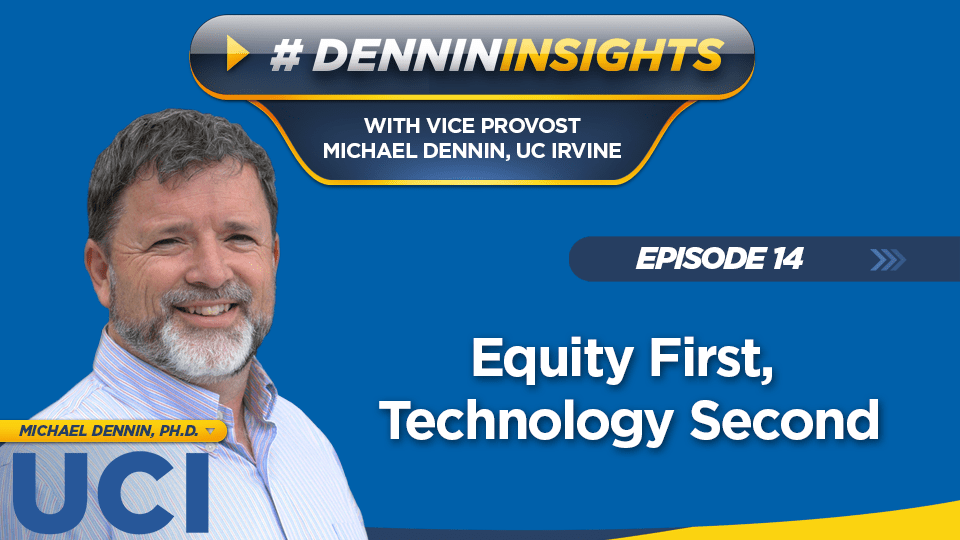
In honor of finals week here at UCI, I thought it would be worthwhile to reflect on my published #DenninInsights posts and highlight the common themes and threads that bring them all together.
Many of my posts are focused on the questions of what instruction may look like post-pandemic and the effects of rapidly integrating technology into our teaching. However, focusing solely on technology and questions of in-person versus online teaching risks missing the overall point I am hoping to make—that we need to transform our educational structures and practices to achieve truly equitable approaches.
We are at a remarkable time in history where we have the opportunity to redefine and transform our institutional structures to make them more equitable, inclusive, and representative of life in the 21st century. Recreating inequitable structures with technology or falling back on inequitable practices in a rush to “return to normal” would mean missing a special moment in time where we can embrace the move to equity. This is why conversations around post-pandemic education rely upon an understanding that our role as a university is to support a widely diverse student population and offer them flexible avenues for advancement.
Within this context, we can look at our various institutional structures and evaluate where they are posing barriers to our students instead of empowering their success. Things like course design, assessment modes, grading systems, GPA calculations, and instructor use of technology are all important elements of the higher education system that we have an opportunity to question, challenge, and actually change for the better. As we look forward to returning to in-person instruction, we have the ability to fundamentally change how we are operating as an institution.
Change is not limited to our operational structures—we also have the opportunity to adjust how we think about our roles within the higher education system. Should we as faculty serve as gatekeepers or judges who determine which students deserve to advance? Or can we shift our mindset to acknowledge the diversity of student strengths, embrace collaboration, recognize when we are creating unnecessary obstacles, and focus on successes rather than failures?
These are the conversations and considerations that I have been exploring in this blog. But a conversation is a two-way street. Now, I am excited to open up the conversation to you! I encourage you to share your thoughts with me on Twitter, LinkedIn, Facebook, or Instagram. You can also send an email to mdennin@uci.edu to join the discussion.
Together, we can push higher education towards a more inclusive, accessible, and equitable future.
Recent Comments